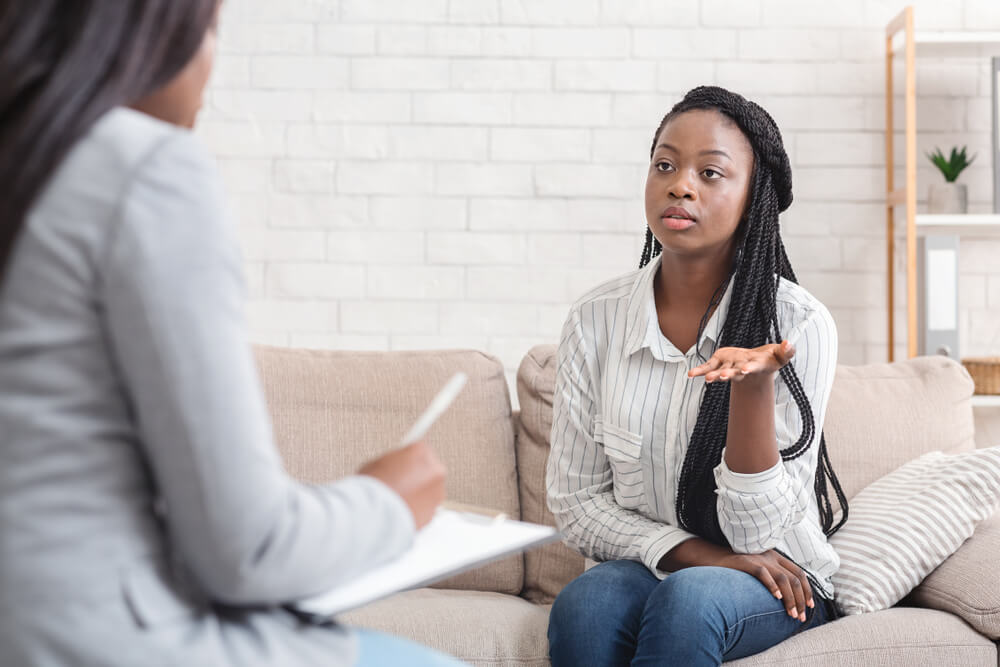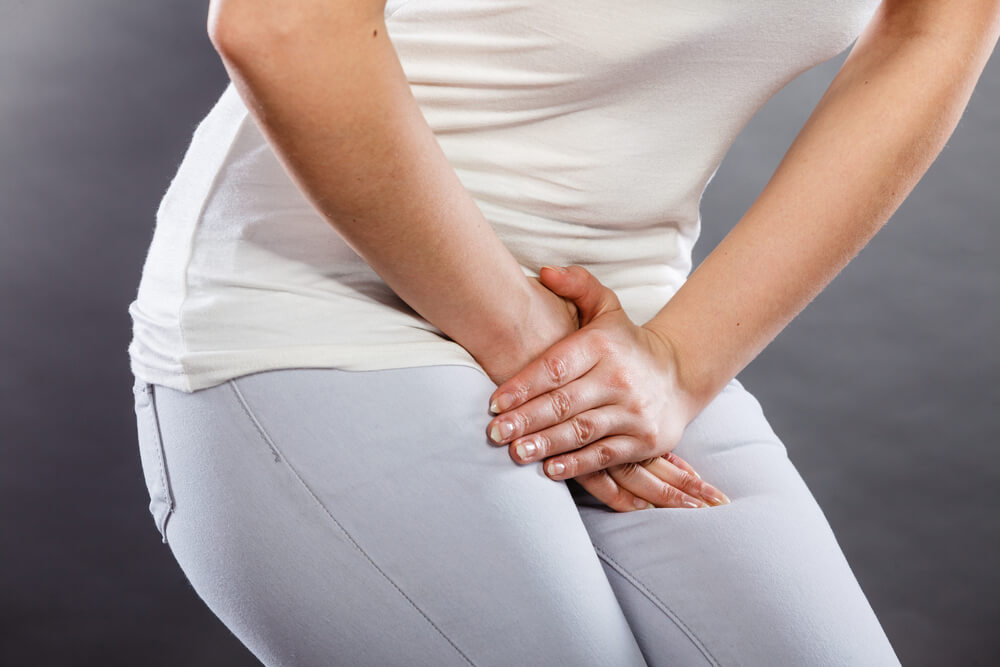Vulvodynia can be best described as chronic pain in the vulvar area, or the genitals or vagina, with no apparent reason behind it. Vaginal and vulvar pain are generally prevalent symptoms of several conditions like skin disorders and infections. Still, vulvodynia is different, as the pain may last for months without any specific underlying cause.
If you are experiencing vulvodynia symptoms and looking for gynecology care in Loxahatchee, FL, consider scheduling an appointment with our team at Comprehensive OBGYN of the Palm Beaches to learn more about the condition and to find relief from the pain.
Before that, please read this article about vulvar pain and vulvodynia to learn more about the condition.
Types of Vulvodynia
Typically, two types of vulvodynia are classified based on the origin of the discomfort:
- Localized vulvodynia: In most cases, the pain will focus on a specific spot, like the clitoris or the vulvar vestibule. The condition may also be referred to as localized vulvar pain syndrome.
- Generalized vulvodynia: In these instances, the discomfort isn’t in a single spot, and patients experience pain in different parts of the vagina or vulva at different times. There are cases when patients feel discomfort throughout the vulva.
There is also unprovoked and provoked vulvar pain. When it’s provoked, then patients feel pain with activity or touch. Unprovoked vulvodynia will be painful even without touching or activity.

The Burden of Vulvar Pain
Needless to say, the condition may be life-altering because:
- The pain stemming from sitting in one place for prolonged periods can make it challenging to perform your job.
- Sexual intercourse may be impossible, which can damage your relationships.
- The condition may lead to sleep deprivation.
- Even wearing specific clothes can be painful.
For the most part, patients diagnosed with the condition range from ages 20 to 60, but women may develop the condition at any age.
Also, vulvar pain is the most prevalent cause of dyspareunia (painful intercourse) and chronic pelvic pain in women of reproductive age. Still, pinpointing the exact number of people with the condition is difficult. Many women simply don’t seek treatment. On the other hand, diagnosing the condition may also be difficult as the exact causes are unknown, leading to misdiagnosis.
Vulvodynia Symptoms and Causes
As mentioned, experts aren’t exactly sure what causes vulvar pain, but they often point to potential causes like the following:
- Hormonal factors.
- Genetic factors.
- Inflammation.
- Nerve injuries.
- Reactions to past vaginal infections.
- Weak pelvic floor muscles.
- Irritation from chemicals and other harsh products.
On the other hand, people with the condition are also diagnosed with other medical conditions, such as the following:
- Irritable bowel syndrome
- Painful bladder syndrome
- Temporomandibular disorder
- Fibromyalgia
And to make matters worse, people with vulvar pain may be more susceptible to stress and other behavioral issues such as:
- Depression
- Anxiety
- PTSD, or post-traumatic stress disorder.
When talking about vulvodynia symptoms, they can feel different to different patients. Still, in most cases, the pain will vary from mild to severe, often feeling like:
- Stabbing
- Burning
- Itching
- Throbbing
- Rawness
- Stinging
The pain may originate from a single spot or may shift to places, or may feel as if it’s spread out the entire vulva.
Also, the pain may:
- Last without stopping for months.
- Be unpredictable, stopping and starting over months.
- Start without any apparent reason out of the blue.
- Start during intercourse, running, exercise, walking, sitting, or inserting a tampon,
Diagnosing Vulvar Pain
Vulvodynia diagnosis from your healthcare provider involves the process of eliminating other potential causes for your discomfort. This entails discussing your medical history, sexual history, and any past surgeries. Additionally, they will inquire about your specific symptoms, including the location, nature, timing, and intensity of the pain you are encountering in the vulvar area.
Healthcare providers may recommend the following procedures and tests to diagnose the condition:
- Infection swab tests: These are used to rule out infections that may lead to vulvar pain, such as bacterial vaginosis, sexually transmitted infections, or yeast infections.
- Physical exam: Your healthcare provider will examine your vulva and conduct a pelvic examination using a speculum to examine your vagina and cervix, which is the gateway between your vagina and uterus. They will also assess your pelvic floor muscles to pinpoint areas of discomfort.
- Point-pressure testing: This is the cotton swab test in which your provider will use a cotton swab, brush it gently over your vulva, and ask when the contact starts to feel painful. It can be especially helpful in diagnosing localized vulvodynia.
In rare instances, providers may order a biopsy or a colonoscopy to rule out other medical conditions.
Vulvodynia Treatments
Typically, vulvodynia treatments will take time to prove effective. Often, it takes time to find the right option or the right treatment combination that will offer relief.
In most cases, the most prevalent vulvodynia treatments include the following approaches:
- Topical medication that you can apply to the area to numb it or stabilize the nerves. In some cases, experts may recommend using estrogen-containing cremes or solutions with both progesterone and estrogen.
- Oral medication such as anticonvulsants and antidepressants to reduce nerve pain.
- Physical therapy can help loosen the muscle tension in the pelvic floor, which may also reduce the frequency of muscle spasms in this area (which are common with vulvar pain).
- Using nerve block injections that block pain signals from reaching your brain from the nerves.
- Counseling, like sex therapy, individual sessions, or couple’s counseling, may help improve the areas of your life that suffer because of the condition.
- Vestibulectomy procedures may prove to be helpful for those diagnosed with localized vulvodynia. Providers may recommend surgery if the pain has failed to improve with any other treatments. During the intervention, surgeons remove the tissue that causes the pain.

On the other hand, vulvodynia treatments will also revolve around pain management. Proper vulvar care and the following tips may also help:
- Using mild soap when washing the vulva
- Epsom salt baths and colloidal oatmeal baths.
- Using unscented and mild laundry detergents
- Wearing all-cotton underwear
- Getting enough sleep
- Implementing effective stress management and relaxation techniques.
- Using unflavored and unscented lubricants during intercourse.
- Using cold compresses or gel packs on the area
- Using foam donuts or other cushion types reduces pressure if you have to sit for prolonged periods.
On the other hand, make sure to avoid:
- Wearing tight jeans, pants, or Pantyhose.
- Scented tampons, toilet paper, panty liners, or pads.
- Using douches or irritants like bubble baths and deodorants.
- Horseback riding, cycling, and other activities that put unnecessary pressure on the vulva.
- Wearing sweaty workout clothes or wet swimsuits for too long.
Get Expert and Compassionate Support
Unfortunately, you can’t prevent the condition, and there’s not enough scientific evidence to know it for sure whether the condition can resolve on its own. This is why it’s important to talk openly about your condition with your provider.
Don’t feel ashamed or scared. There are treatments available that can help. Start with finding a compassionate team of experts who can help you get started on your journey of improving your life and getting your everyday joy back.
On that note, contact us today. Our expert staff is more than ready to help.


